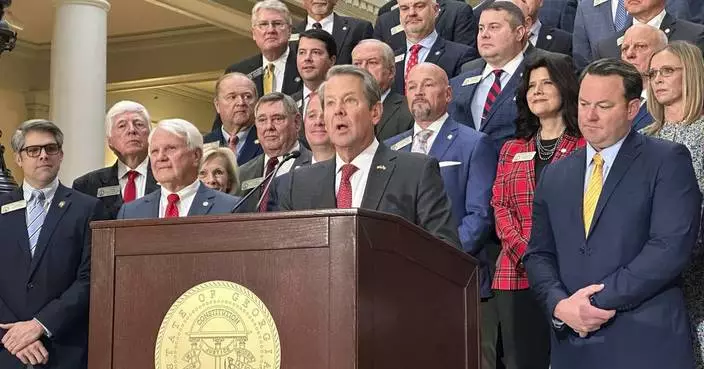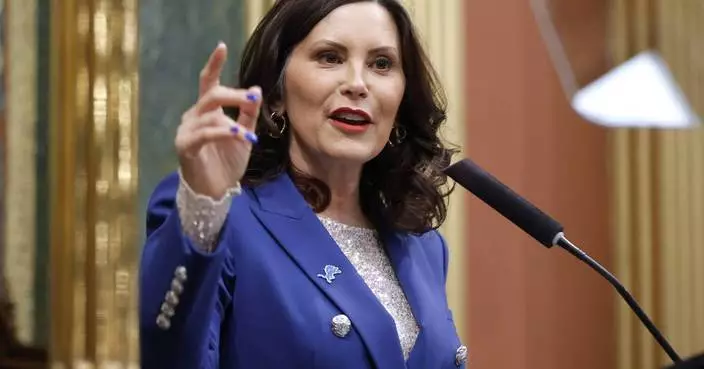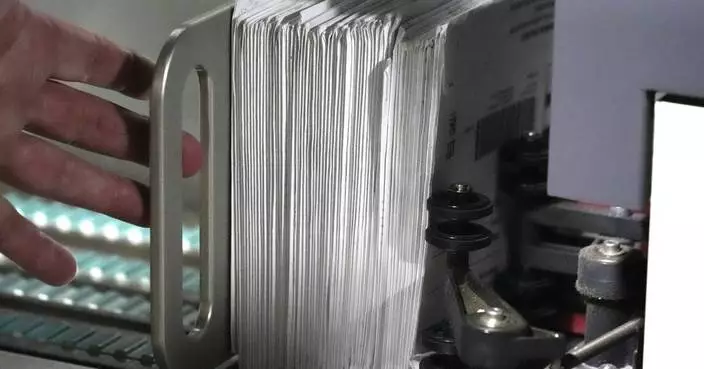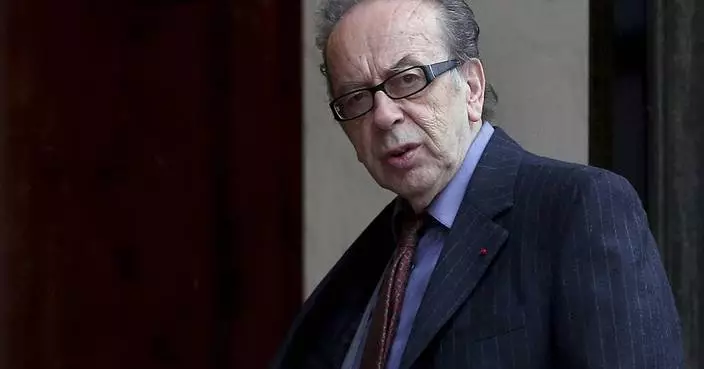LOS ANGELES (AP) — Professional sports leagues have 4.8 billion reasons to review how they distribute out-of-market broadcasts after Thursday's judgement against the NFL in the “Sunday Ticket” case in U.S. District Court.
“It’s going to require other leagues to take a close look at their model and make sure that the means by which they’re providing consumer choice really does ensure true choice,” said Christine Bartholomew, vice dean and professor in the University of Buffalo's School of Law. “What happened here, at least according to the jury, was that the NFL had really suppressed consumer choice. Not only did they steer the consumers towards using satellite TV, it meant that they had to buy the whole package.”
Click to Gallery
LOS ANGELES (AP) — Professional sports leagues have 4.8 billion reasons to review how they distribute out-of-market broadcasts after Thursday's judgement against the NFL in the “Sunday Ticket” case in U.S. District Court.
Dallas Cowboys owner Jerry Jones arrives at federal court Tuesday, June 18, 2024, in Los Angeles. Jones is testifying in a class-action lawsuit filed by "Sunday Ticket" subscribers claiming the NFL broke antitrust laws. (AP Photo/Damian Dovarganes)
There are 4.8 billion reasons why other leagues are watching the fallout from 'Sunday Ticket' case
There are 4.8 billion reasons why other leagues are watching the fallout from 'Sunday Ticket' case
NFL Commissioner Roger Goodell, right, arrives at federal court Monday, June 17, 2024, in Los Angeles. Goodell is expected to testify as a class-action lawsuit filed by "Sunday Ticket" subscribers claiming the NFL broke antitrust laws. (AP Photo/Damian Dovarganes)
The jury of five men and three women determined the NFL violated antitrust laws in distributing Sunday afternoon games not aired locally on Fox or CBS on a premium subscription service that only had one distributor. That kept the cost of the package high and limited those who could subscribe so that it would not impact local ratings.
The class-action lawsuit covered 2.4 million residential subscribers and 48,000 businesses in the United States who paid for the package of out-of-market games from the 2011 through 2022 seasons on DirecTV.
The jury awarded $4.7 billion in damages to the residential class and $96 million in damages to the commercial class. Since damages can be tripled under federal antitrust laws, the NFL could end up being liable for $14.39 billion.
Major League Baseball, the National Basketball Association and National Hockey League also offer out-of-market packages, but they are structured in a different manner compared to the NFL. All three are offered on cable and satellite providers as well as streaming.
With their digital packages, MLB and the NBA offer multiple options, including a team-by-team package. The NBA also offers a pay-by-game option.
The NHL's digital package in the U.S. is included in the subscription to the ESPN+ streaming service.
The MLB, NHL and NBA packages also come in at a lower subscriber fee than “NFL Sunday Ticket” despite having longer seasons.
Ari Lightman, a professor of digital media and marketing at Carnegie Mellon University, said the NFL will need to be more in line with consumer demands going forward.
“They need to understand different audiences in terms of where they exist, how fans interact and what they’re looking for,” he said. “They want things that fit and are personalized to their needs because anything in excess that they're paying for is unwanted stuff, which is the whole idea around bundling. ... The price point that they were offering on the ‘Sunday Ticket’ package was just a little bit extreme."
Some also remained surprised that the NFL allowed the case to go to court without settling. The league hasn't fared well in antitrust cases and has settled most before they got to court.
In 2010, the Supreme Court ruled in American Needle's case against the NFL that the league was a collection of 32 teams and not a single entity. The cap maker sued the NFL in 2004 for violating antitrust laws for reaching an exclusive deal with Reebok, that began in 2001.
Justice John Paul Stevens wrote in his opinion that “Although NFL teams have common interests such as promoting the NFL brand, they are still separate, profit-maximizing entities.”
The NFL and American Needle eventually settled the case in 2015.
Judge Philip S. Gutierrez is scheduled to hear post-trial motions on July 31, including the NFL’s request to have him rule in favor of the league because the judge determined the plaintiffs did not prove their case.
The NFL has said it would appeal the verdict. That appeal would go to the 9th Circuit Court of Appeals and then possibly the Supreme Court.
Payment of damages, any changes to the “Sunday Ticket” package and/or the ways the NFL carries its Sunday afternoon games would be stayed until all appeals have been concluded.
During closing arguments, the plaintiffs showed a 2017 memo where the NFL was exploring putting games not shown on Fox or CBS on cable channels.
The possibility also remains that somewhere down the line the NFL settles the case. The lawsuit was originally filed in 2015 by the Mucky Duck sports bar in San Francisco but was dismissed two years later in U.S. District Court in Los Angeles. The 9th Circuit Court reinstated the case in 2019.
“ People were critical of the way the plaintiffs' case was put on because of the complicated nature of the evidence. Apparently it was the right strategy because they came out victorious," said Irwin Kishner, co-chair of the Sports Law Group with New York law firm Herrick. "And the NFL trying to bring up wealthy owners might not have the best strategy. Hindsight’s always 20/20.”
AP NFL: https://apnews.com/hub/nfl
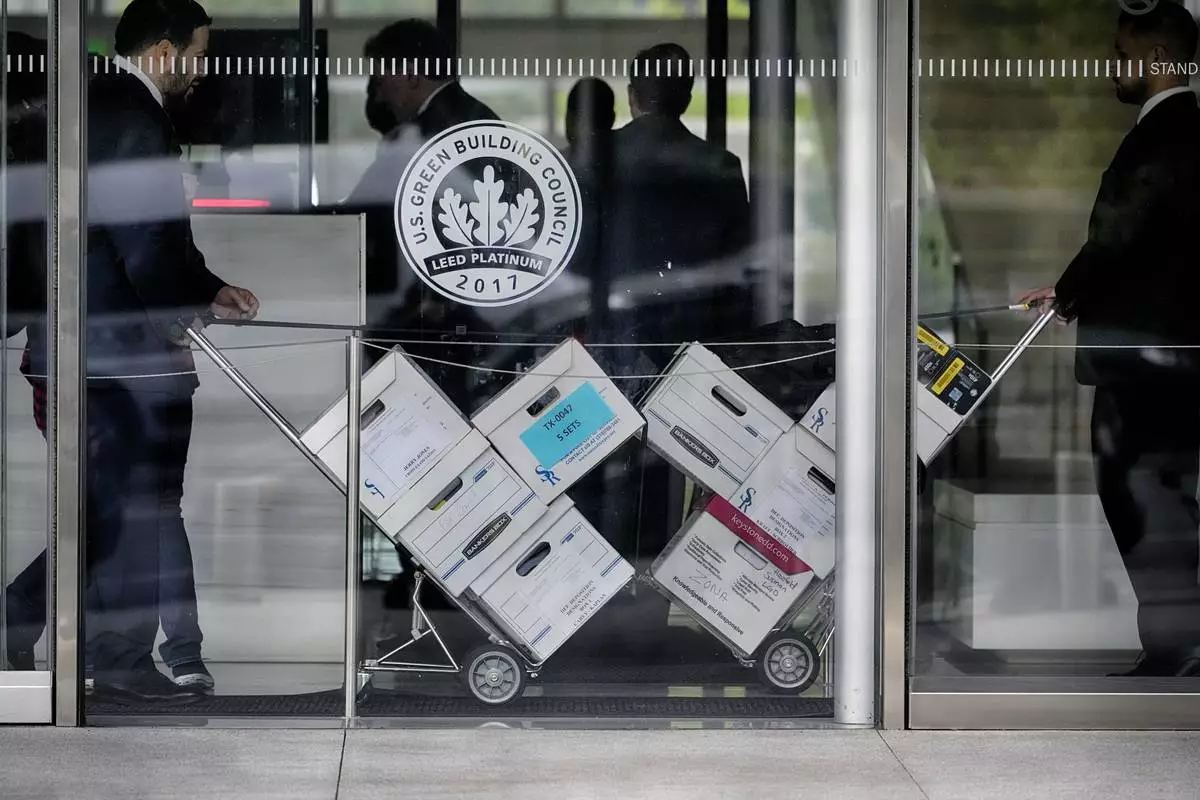
Case documents are wheeled into federal court Monday, June 17, 2024, in Los Angeles. NFL Commissioner Roger Goodell and Dallas Cowboys owner Jerry Jones, a longtime member of the league's broadcast committee, are expected to testify in a trial that could last up to three weeks. (AP Photo/Damian Dovarganes)
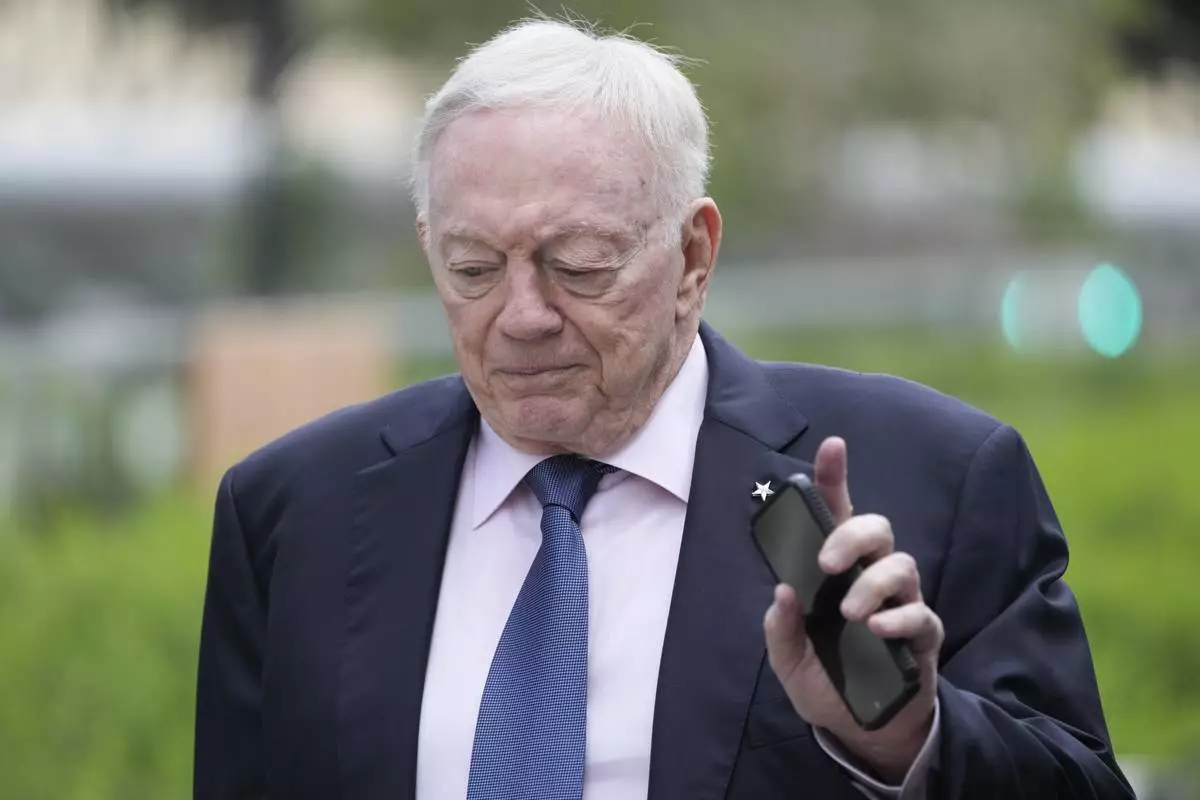
Dallas Cowboys owner Jerry Jones arrives at federal court Tuesday, June 18, 2024, in Los Angeles. Jones is testifying in a class-action lawsuit filed by "Sunday Ticket" subscribers claiming the NFL broke antitrust laws. (AP Photo/Damian Dovarganes)
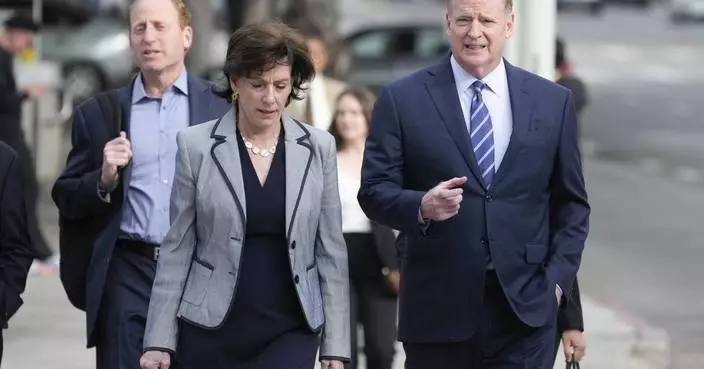
There are 4.8 billion reasons why other leagues are watching the fallout from 'Sunday Ticket' case
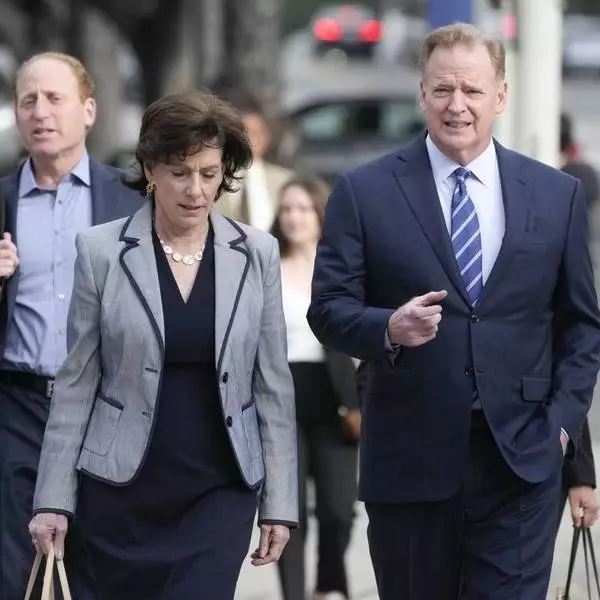
There are 4.8 billion reasons why other leagues are watching the fallout from 'Sunday Ticket' case
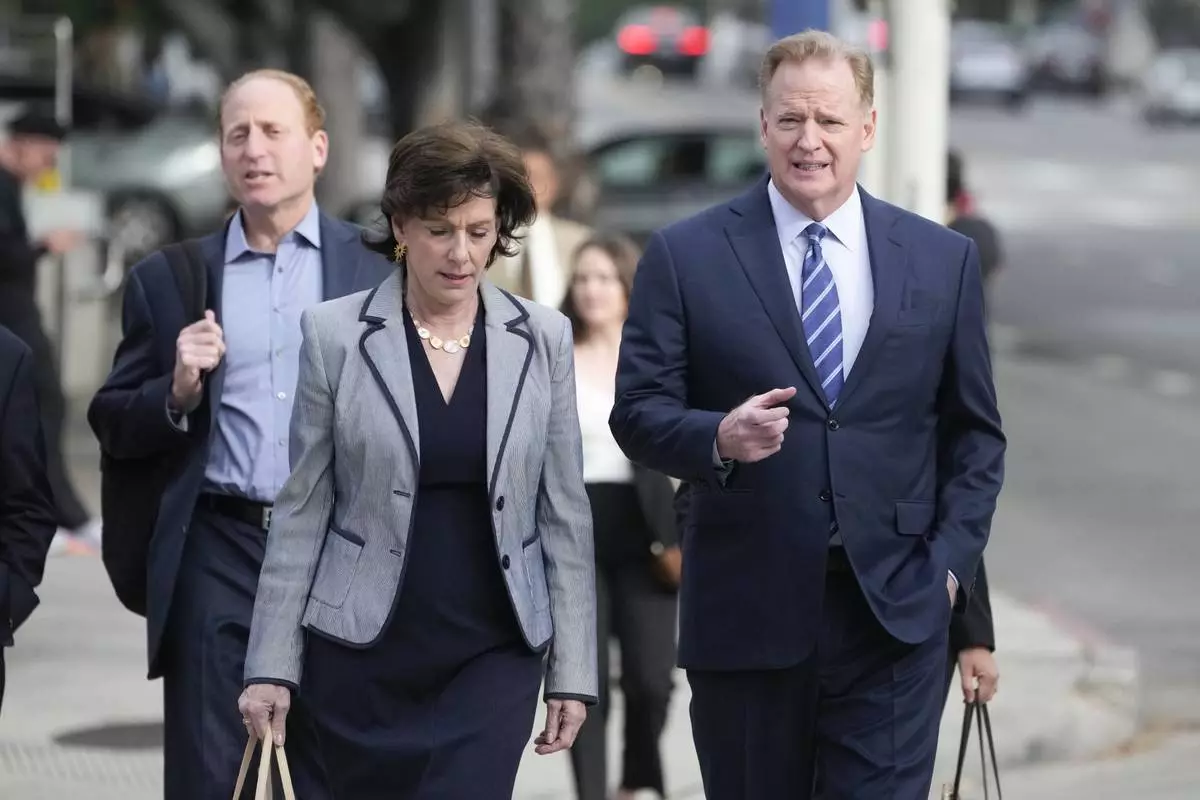
NFL Commissioner Roger Goodell, right, arrives at federal court Monday, June 17, 2024, in Los Angeles. Goodell is expected to testify as a class-action lawsuit filed by "Sunday Ticket" subscribers claiming the NFL broke antitrust laws. (AP Photo/Damian Dovarganes)
WASHINGTON (AP) — The Supreme Court's ruling Monday in former President Donald Trump's 2020 election interference case makes it all but certain that the Republican will not face trial in Washington ahead of the November election.
The Supreme Court did not dismiss — as Trump had wanted — the indictment alleging he illegally schemed to cling to power after he lost to President Joe Biden. But the ruling still amounts to a major victory for the presumptive Republican presidential nominee, whose legal strategy has focused on delaying the proceedings until after the election.
Trump posted in all capital letters on his social media network shortly after the decision was released: “BIG WIN FOR OUR CONSTITUTION AND DEMOCRACY. PROUD TO BE AN AMERICAN!”
The timing of the trial matters because if Trump defeats Biden, he could appoint an attorney general who would seek the dismissal of this case and the other federal prosecutions he faces. Or Trump could potentially order a pardon for himself.
Here's a look at the ruling and what comes next:
In a 6-3 ruling, the justices said that former presidents are shielded from prosecution for actions that fell within their official job duties, but they do not have immunity for unofficial acts.
The ruling means that special counsel Jack Smith cannot proceed with significant allegations in the indictment — or must at least defend their use in future proceedings before the trial judge.
The justices, for instance, wiped out Smith’s use of allegations that Trump tried to use the investigative power of the Justice Department to undo the election results even though officials told him they had uncovered no evidence of pervasive fraud.
The justices sent the case back to U.S. District Judge Tanya Chutkan, who must now “carefully analyze” whether other allegations involve official conduct for which the president would be immune from prosecution.
Among the issues for further analysis is Trump’s relentless badgering of then-Vice President Mike Pence to not certify the electoral votes on Jan. 6, 2021. The justices said it was “ultimately the Government’s burden to rebut the presumption of immunity” in Trump’s interactions with Pence, and sent the question back to Chutkan.
The order also directed additional analysis on the various posts on X, then known as Twitter, that Trump made — as well as a speech he delivered to supporters — in the run-up to the riot at the U.S. Capitol. Determining whether that communication represents official versus unofficial acts, the justices said, “may depend on the content and context of each" and thus needs more scrutiny.
The justices required fresh fact-finding on one of the more stunning allegations in the indictment — that Trump had participated in a scheme orchestrated by allies to enlist fake electors in battleground states won by Democrat Joe Biden who would falsely attest that Trump had won in those states.
The Trump team had argued that the selection of alternate electors was in keeping with Trump’s presidential interest in the integrity and administration of the federal elections and cited as precedent an episode he said took place in the disputed election in 1876.
The Smith team, by contrast, portrayed the fake elector scheme as a purely private action that implicated no presidential duty.
The conservative justices in their majority opinion didn’t answer the question as to which side was right, instead saying that “determining whose characterization may be correct, and with respect to which conduct, requires a close analysis of the indictment’s extensive and interrelated allegations.”
Unlike Trump’s interactions with the Justice Department, the justices said, “this alleged conduct cannot be neatly categorized as falling within a particular Presidential function. The necessary analysis is instead fact specific, requiring assessment of numerous alleged interactions with a wide variety of state officials and private persons.”
The three liberal justices — Sonia Sotomayor, Elena Kagan and Ketanji Brown Jackson — sharply criticized the majority’s opinion in scathing dissents. Sotomayor gave a dramatic speech as she read her dissent from the bench, at times shaking her head and gritting her teeth as she said the conservative majority wrongly insulated the U.S. president as “a king above the law.”
“Ironic isn’t it? The man in charge of enforcing laws can now just break them," Sotomayor said.
The dissenting justices said the majority decision makes presidents immune from prosecution for acts such as ordering Navy seals to assassinate a political rival, organizing a military coup to hold onto power or accepting a bribe in exchange for a pardon.
“Even if these nightmare scenarios never play out, and I pray they never do, the damage has been done. The relationship between the President and the people he serves has shifted irrevocably. In every use of official power, the President is now a king above the law,” Sotomayor wrote.
In a separate dissenting opinion, Jackson said the majority’s ruling “breaks new and dangerous ground.”
“Stated simply: The Court has now declared for the first time in history that the most powerful official in the United States can (under circumstances yet to be fully determined) become a law unto himself,” Jackson wrote.
The majority opinion accused the liberal justices of “fear mongering” and striking a “tone of chilling doom that is wholly disproportionate to what the court actually does today.”
The case will now go back to Chutkan, who would oversee the trial.
The trial was supposed to have begun in March, but the case has been on hold since December to allow Trump to pursue his appeal. Chutkan had indicated at that time she would likely give the two sides at least three months to get ready for trial once the case returns to her court.
That had left the door open to the case potentially going to trial before the election if the Supreme Court — like the lower courts — had ruled that Trump was not immune from prosecution.
But the Supreme Court's ruling that Chutkan must conduct further analysis is expected tie the case up for months with legal wrangling over whether the actions in the indictment were official or unofficial.
Trump was convicted in May of 34 felony counts in his hush money trial in New York and is scheduled to be sentenced on July 11. The falsifying business records charges are punishable by up to four years behind bars, but there's no guarantee Trump will get prison time. Other possibilities include fines or probation.
It seems almost certain that Trump's two other criminal cases will not go to trial before the election.
An appeals court recently halted Trump's Georgia 2020 election interference case while it reviews the lower court judge’s ruling allowing Fulton County District Attorney Fani Willis to remain on the case. No trial date had been set in that case.
Trump was supposed to stand trial starting in May in the other case brought by Smith, o ver classified documents found at Trump's Mar-a-Lago estate after he left the White House. But U.S. District Judge Aileen Cannon canceled the trial date as the case got bogged down with legal issues. She has yet to schedule a new one.
Last week, Cannon set the stage further delays by agreeing to revisit a ruling by another judge that permitted crucial evidence related to allegations of obstruction of justice by Trump to be introduced into the case.
One of the arguments Cannon has entertained — that Smith was illegally appointed and that the case should be dismissed — got little traction with the Supreme Court.
A separate concurrence from Justice Clarence Thomas concluded that Smith's appointment was improper, but no other justice signed onto that.
Associated Press reporters Michelle L. Price in New York and Stephen Groves in Washington contributed.
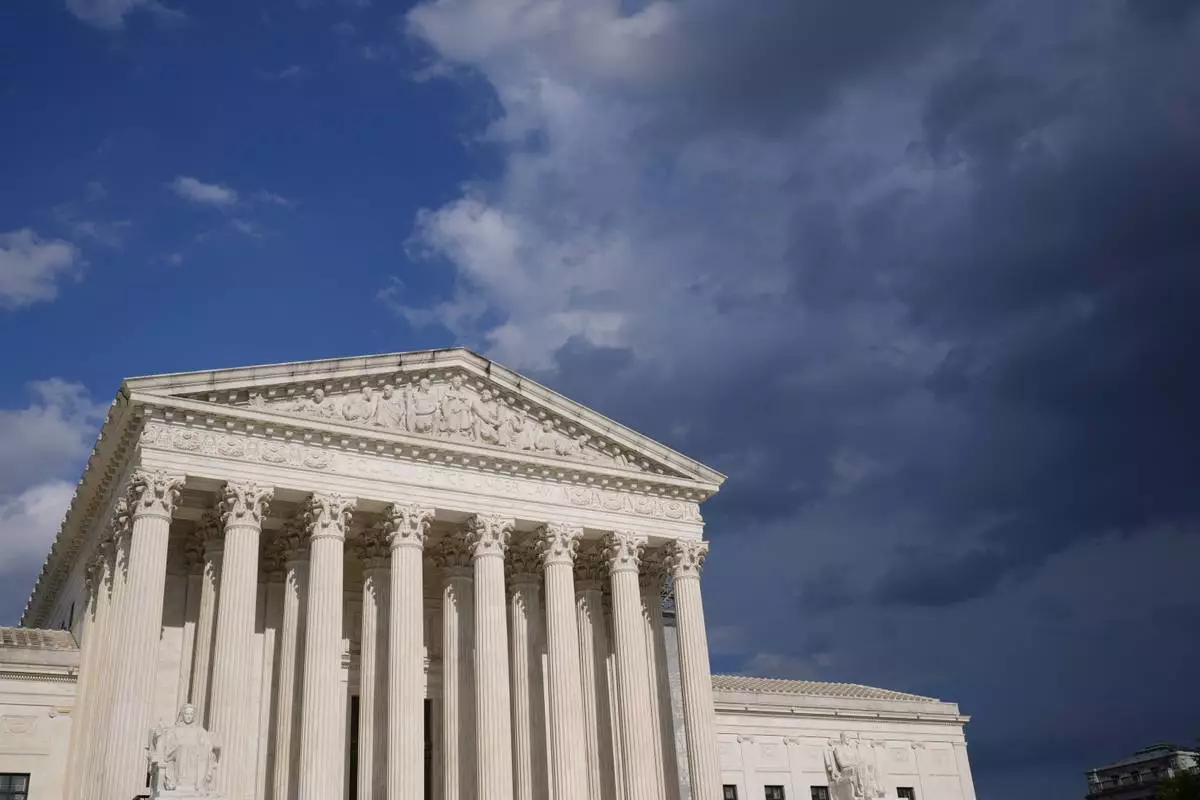
The Supreme Court in Washington, Sunday, June 30, 2024. (AP Photo/Susan Walsh)
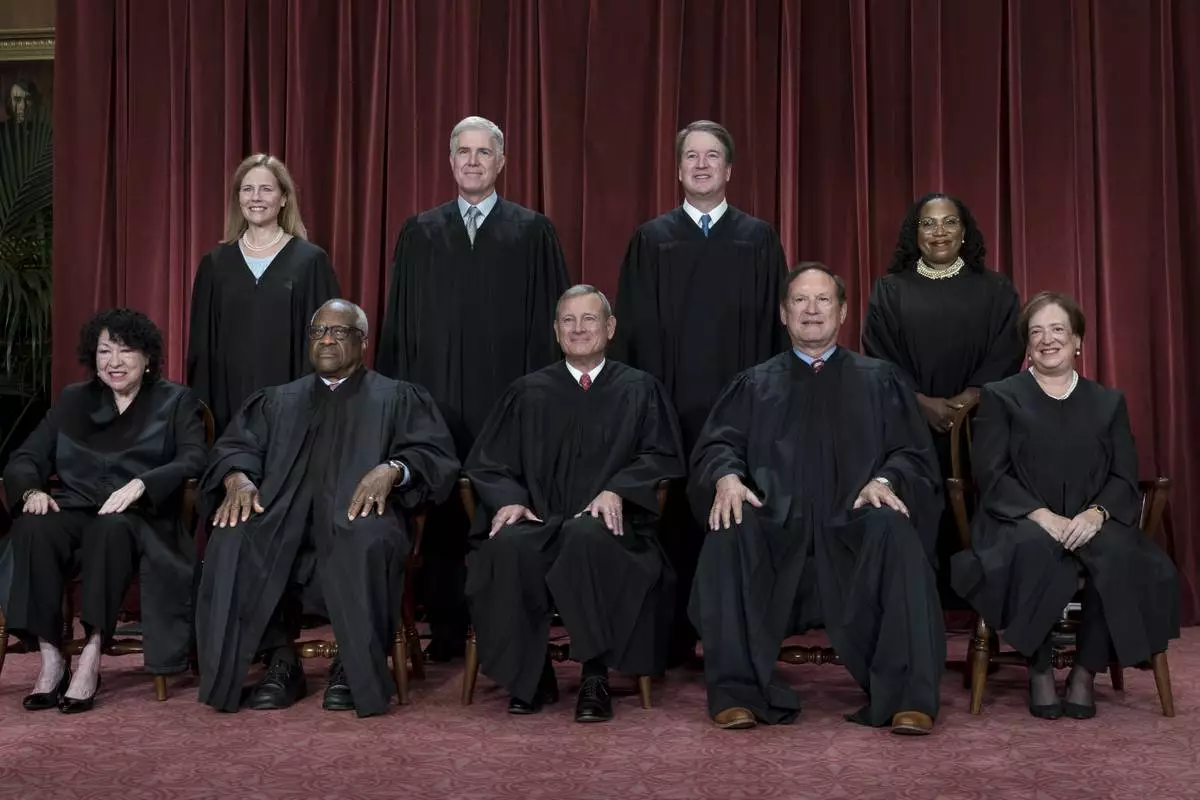
FILE - Members of the Supreme Court sit for a group portrait in Washington, Oct. 7, 2022. Bottom row, from left, Justice Sonia Sotomayor, Justice Clarence Thomas, Chief Justice John Roberts, Justice Samuel Alito and Justice Elena Kagan. Top row, from left, Justice Amy Coney Barrett, Justice Neil Gorsuch, Justice Brett Kavanaugh, and Justice Ketanji Brown Jackson. The Supreme Court justices will take the bench Monday, July 1, 2024, to release their last few opinions of the term, including their most closely watched case: whether former President Donald Trump has immunity from criminal prosecution. (AP Photo/J. Scott Applewhite)













